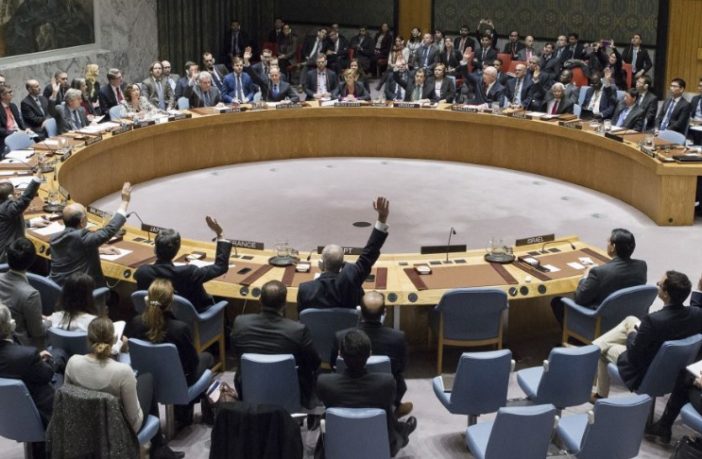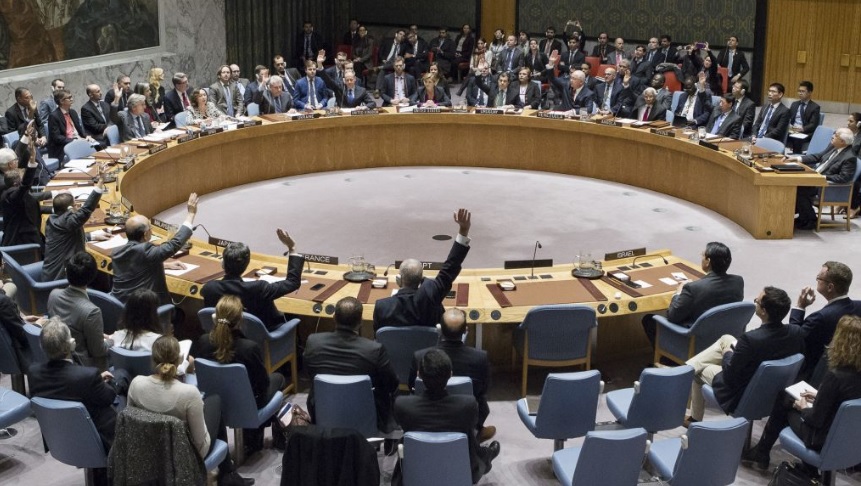The Washington Post
By Edith M. Lederer
The Associated Press
The U.N. Security Council approved a resolution Friday aimed at speeding up a solution to the 42-year conflict over the Western Sahara between Morocco and the Polisario Front independence movement amid heightened tensions over the mineral-rich territory.
The vote on the U.S.-sponsored resolution in the 15-member council was 12-0 with Russia, China and Ethiopia abstaining.
The three countries complained that the United States refused to accept suggested changes to the text and said it was unbalanced — indicating it was too critical of the Polisario and too pro-Moroccan.
Morocco annexed Western Sahara, a former Spanish colony, in 1975 and fought the Polisario Front. The U.N. brokered a cease-fire in 1991 and established a peacekeeping mission to monitor it and to help prepare a referendum on the territory’s future that has never taken place.
Keep Reading
Morocco considers the mineral-rich Western Sahara its “southern provinces” and has proposed giving the territory wide-ranging autonomy. The Polisario Front insists on self-determination through a referendum for the local population, which it estimates at between 350,000 and 500,000.
U.S. political coordinator Amy Tachco told the Security Council that the Trump administration “continues to view Morocco’s autonomy plan as serious, credible and realistic, and it represents one potential approach to satisfy the aspirations of the people in Western Sahara to run their own affairs with peace and dignity.”
Russia’s deputy U.N. ambassador Vladimir Safronkov said parts of the resolution “damage the impartial and unbiased approach of the Security Council to the Western Sahara and we do not agree with this.”
“The ultimate formula must be acceptable for the Moroccans and the Polisario and provide for the self-determination of the people of Western Sahara within procedures in line with the U.N. Charter,” he said. “This is the main concept underpinning this settlement and it is unacceptable to replace it with another formula.”
In their latest flashpoint, Secretary-General Antonio Guterres earlier this month called on the Polisario Front to withdraw from Guerguerat in the buffer zone on the Morocco-Mauritanian border. He also urged Morocco to reconsider its refusal to send an expert mission as part of the U.N. effort to address questions raised by the Guerguerat situation.
The resolution calls for the Polisario Front to immediately withdraw from Guerguerat, but makes no mention of Morocco. It also expresses concern at the Polisario announcement of plans to move administrative functions to Bir Lahlou, and calls on the movement “to refrain from any such destabilizing plans.”
Polisario Front spokesman Mhamed Khadad said the U.N. has confirmed that Bir Lahou is in Polisario-controlled territory and does not violate the 1991 cease-fire agreement. He expressed regret that the Security Council “has given undue credence to Morocco’s fabrications.”
The resolution calls for “a realistic, practicable and enduring political solution” and strongly backs efforts by former German president Horst Koehler, the secretary-general’s personal envoy, to relaunch negotiations.
But Koehler clearly faces an uphill struggle to get both sides back to negotiations.
Khadad said in a statement that the Polisario Front “reiterates its commitment to enter into a time-bound process of direct negotiations with Morocco to finally allow for the exercise by our people of our inalienable right to self-determination and independence in accordance with the United Nations doctrine on decolonization.”
“We will accept nothing less than the full respect of our legal right to self-determination and independence,” he stressed.
Morocco’s U.N. Ambassador Omar Hilale insisted Polisario must withdraw from Guerguerat before any talks.
“If they don’t or if they will not withdraw, there will be no political process,” he told reporters. “I’m saying here and repeating to the Polisario and Algeria — no political process as long as the Polisario is violating the ceasefire and also trying to transfer its so-called structures.”
At the same time, the United States made clear it wants to see the U.N. Mission monitoring the 1991 cease-fire, which was also supposed to help oversee the referendum on the territory’s future, ended.
Tachco said the mission began 27 years ago and has lapsed “into a textbook example of a frozen conflict and … a textbook example of a peacekeeping mission that no longer serves a political purpose.”
She said that’s why the mission was extended for six months until Oct. 31 instead of a year.
“It is time to see progress toward a political solution, and after 27 years, to stop perpetuating the status quo,” Tachco said.








